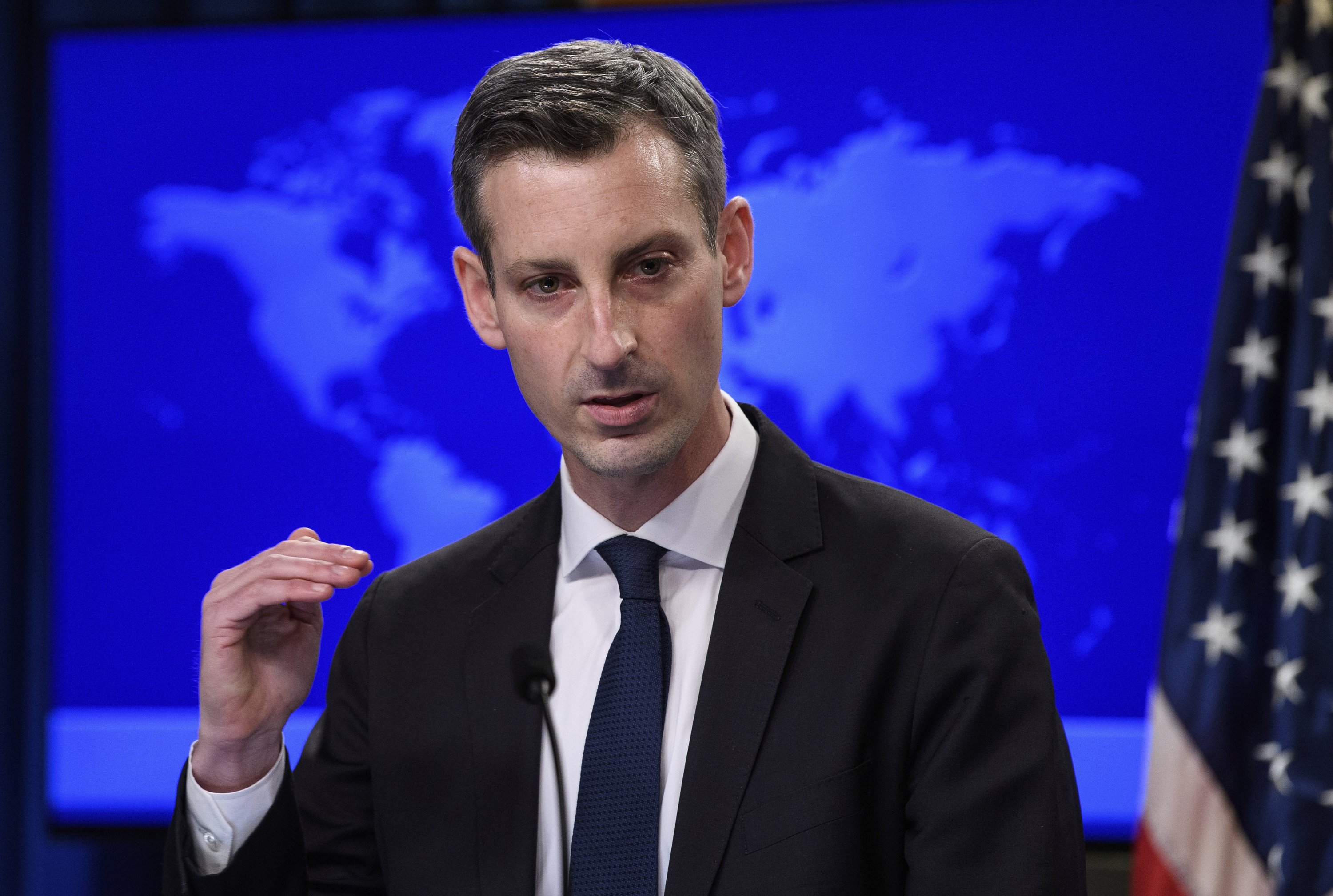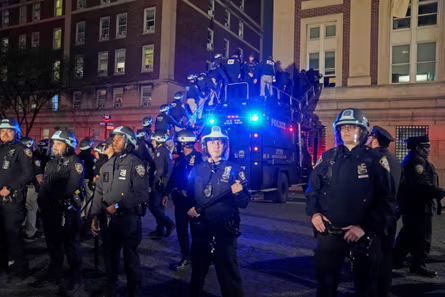Just last week, President Joe Biden said he would use military force as “a last resort” if Iran did not return to compliance with the 2015 nuclear deal, known as the Joint Comprehensive Plan of Action, or JCPOA.
‘TOO SHORT FOR COMFORT’: With Iran declaring it now has the “technical means” to build a nuclear bomb, the Biden administration insists there is still time for Iran to accept a negotiated deal to avert a showdown that could lead to military conflict.
“There is a deal on the table now that JCPOA negotiations are complete,” said John Kirby, NSC coordinator for strategic communications, on Fox yesterday. “It’s up to Iran to see whether they’re going to take it or not.”
“If they don’t, then we’re going to continue to put pressure on them with our allies and partners,” Kirby said. “And just as importantly, we’re going to continue to make sure we have the capability and the capacity in the region, military and otherwise, to deal with their destabilizing activities.”
At the State Department, spokesman Ned Price said Iran’s breakout time — the time it would take to amass enough fissile material to create a nuclear weapon — has decreased significantly, from about a year to “a matter of a few weeks or less.”
“A mutual return to compliance would put Iran’s nuclear program back in a box. It would lengthen that breakout time, which is now too short for comfort, which has now dwindled well beyond where anyone would like to see it.”
THE BLAME GAME: The Biden administration blames former President Donald Trump, who pulled the U.S. out of the agreement between Tehran and six world powers in 2018, for Iran’s current status as a “threshold state,” on the verge of acquiring nuclear weapons.
“Unfortunately the previous administration pulled out of the deal and allowed Iran to continue to advance their capability and to build fissile material,” said Kirby on Fox. “And so, we are where we are.”
READ ALSO: Putin, Erdogan To Discuss Ukrainian Grain Exports In Tehran
“John Kirby is wrong,” said Sen. Tom Cotton (R-AK) in an appearance on Fox following Kirby. “When President Trump withdrew from the nuclear deal, he didn’t empower, embolden Iran. In fact, they barely got past the limits of enriched uranium under that nuclear deal in the Trump administration. Why? Because they were afraid of America after President Trump authorized the killing of their terrorist mastermind Qasem Soleimani.”
“Iran is racing toward the nuclear breakout because Joe Biden is engaging in endless negotiations with an anti-American regime that chants death to America. And John Kirby is wrong,” Cotton said. “This has all happened on Joe Biden’s watch because the Ayatollahs knew that Joe Biden didn’t have the nerve to stand up to them.”
It was earlier reported that, The United States estimates the amount of time Iran needs to churn out enough highly enriched uranium for a nuclear bomb is now “very short,” a Biden administration official said Friday.
The official, who briefed reporters on condition of anonymity, did not specify the exact length of time Iran needs to produce enough material for a nuclear weapon. Estimates have put the breakout time at several months.
“But it’s really short. It is unacceptably short,” the official was quoted as saying by Reuters.
The official also called the new assessment of the Islamic Republic’s breakout time “alarming.”
The remarks came as Western powers reported some progress in talks to save the landmark Iran nuclear deal, but European diplomats warned that they were “rapidly reaching the end of the road.”
In a blow to European mediators, Iran requested a new pause in the talks in Vienna, which aim to bring the United States back into the 2015 agreement and roll back nuclear activities. The Islamic Republic publicly stepped up its nuclear projects after the US withdrawal from the deal.
The talks had just resumed in late November after a five-month break following the election of a new hardline government in Iran.
Underlying Western concerns are fears that Iran will soon have made enough progress that the 2015 accord — under which it was promised economic relief in return for drastic curbs on its nuclear work — will be obsolete.
Enrique Mora, the EU official chairing the talks, called for a “sense of urgency” and for talks to resume before the end of the year.
“We are not talking anymore about months, we are talking about weeks,” Mora said.
Former US president Donald Trump pulled out of the deal in 2018 and imposed sweeping sanctions including a unilateral US ban on Iran’s oil sales, vowing to bring the US adversary to its knees.
US President Joe Biden supports a return to the agreement negotiated by predecessor Barack Obama, formally known as the Joint Comprehensive Plan of Action, but has been frustrated by the pace of resurrection efforts.
“It’s not going well in the sense that we do not yet have a pathway back into the JCPOA,” Biden’s national security advisor, Jake Sullivan, said of the talks.
“We are paying the wages of the disastrous decision to leave the deal back in 2018,” he said.
But Sullivan, speaking at the Council on Foreign Relations in Washington, said recent days “have brought some progress at the bargaining table.”
Another US official said the latest round was “better than it might have been” and “worse than it should have been.”
The official called for a “very significant acceleration” and said the US was ready to return before New Year’s.
“If it takes this much time to agree on a common agenda, imagine how much time it will take to resolve the issues on that agenda,” they said.
Russia, which along with China is also in the talks, said negotiators agreed to start from where they left off in June before Iran requested a break for its elections.
The latest round was “successful in a sense that it prepared sound basis for more intensive negotiations,” envoy Mikhail Ulyanov wrote on Twitter.
Tehran’s chief negotiator Ali Bagheri said there were “hard and intense negotiations” to agree on the “bases” for further talks which will take place “in the near future.”














